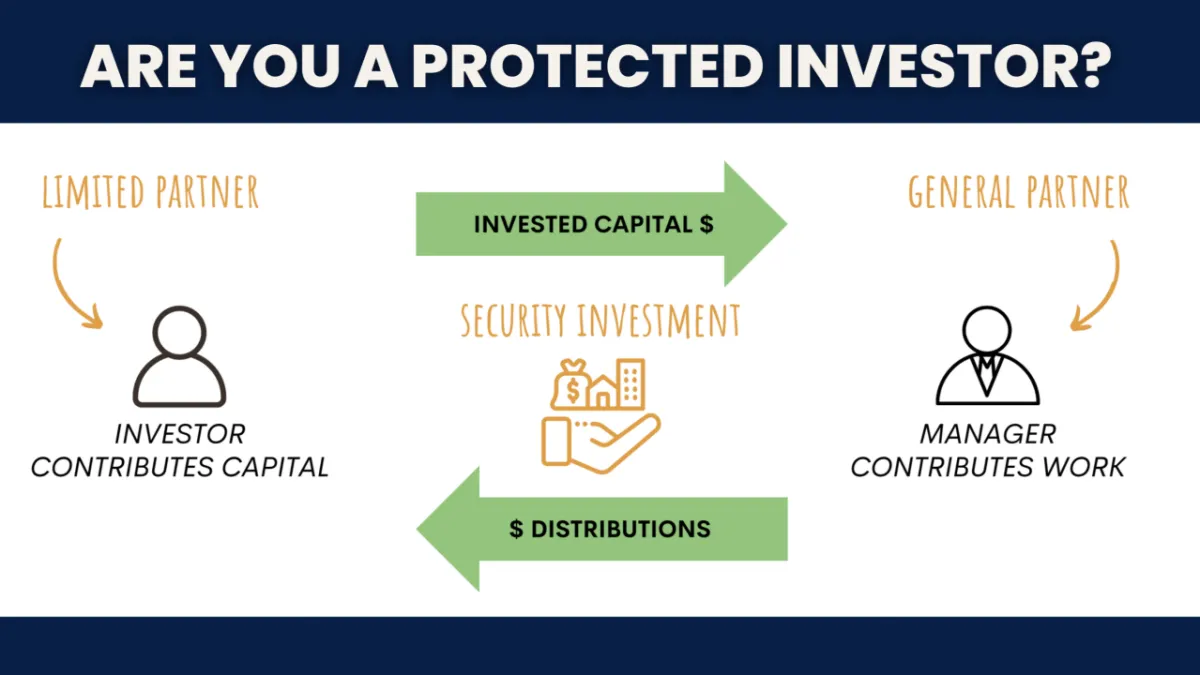Rise Capitals Articles To Educate And Inspire

YOUR PATH TO SAFER INVESTING
"Investing as a Limited Partner offers the unique benefit of growing your wealth with limited liability, freeing you from daily operations while ensuring your capital is protected in a regulated environment."
Rise Capital Investments
Understanding Securities 101: (And Why Should You Care)
The best path to learning something new is simple: first, figure out how much you care about it. When it comes to securities, there are plenty of reasons to care. Understanding what a security is and the protections it offers can help safeguard your investments from fraud, scams, gross incompetence, theft, and more.
Investing in securities, as its name implies, provides a layer of security for investors who are not involved in the daily operations of a business.
Working with a reputable business that follows legal guidelines when raising capital is an essential green flag 🍀 indicating that you are dealing with operators who value ethics and attention to detail.
If you don't know at least a summary of what those legal guidelines are, you won't know what questions to ask before investing!
Investing Safety: The Built-in Protections
A security is essentially an investment that protects those who contribute capital but do not actively manage the business, often referred to as "silent partners."
The Securities and Exchange Commission (SEC) regulates these investments on both federal and state levels. Securities can either be publicly registered (such as the stock market, company bonds, annuities, etc.) or privately traded with the proper filing (such as startups, real estate, government bonds, etc.)
In the case of private investments, a Private Placement Memorandum (PPM) serves as a legal disclosure document that outlines the terms of the investment. Additionally, the Form D filing with the SEC, required within 15-17 days of the first investment, provides another layer of transparency.
The Simple Breakdown of a Security
An investment that includes Limited Partners (LP) is considered a security.

In 1946, the Supreme Court case SEC v. Howey established the fundamental criteria for defining a financial security as a business venture that includes limited partners, now known as the "Howey Test."
A Limited Partner (or LP) is “A person or entity [who] invests money in a common venture and is led to reasonably expect profits derived from the entrepreneurial or managerial efforts of [others].”
The Howey Test outlines that:
A security is an investment of money with little to no ongoing work.
There is an expectation of profits from the investment.
The investment of money is in a common enterprise.
Any profit comes from the efforts of a promoter or third party.
Limited Partners (LPs), as either lenders or profit-sharing partners, have specific protections under this definition.
LPs have limited liability, meaning their potential loss is capped at their initial investment.
The Benefits of "Losing Control" as a Limited Partner
As a Limited Partner, your rights include protection from direct involvement in daily operations, liability limited to your initial investment, and the expectation of profits managed by the business operators.
This status as Limited Partner provides a safety net, ensuring you aren't personally liable for business debts or legal issues beyond your investment. It allows you to participate in the potential growth of an enterprise without the demands of day-to-day management, offering a way to grow your wealth with confidence in a regulated environment.
By understanding your rights, you can make informed investment decisions, ensuring your partnership is both secure and beneficial, and frees up your time to actively earn more income in your area of specialization, investing passively in other businesses to maximize your dollars.

